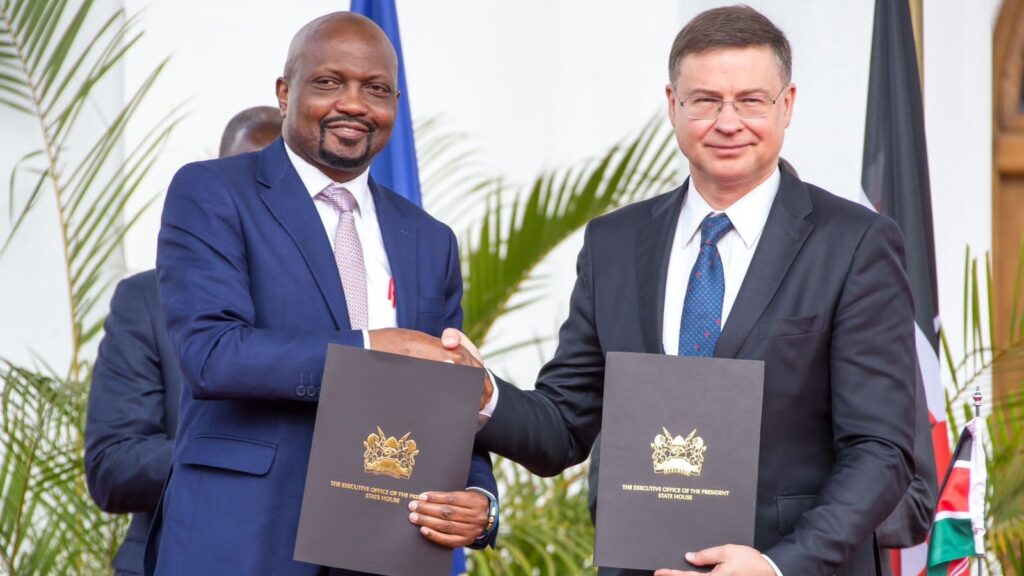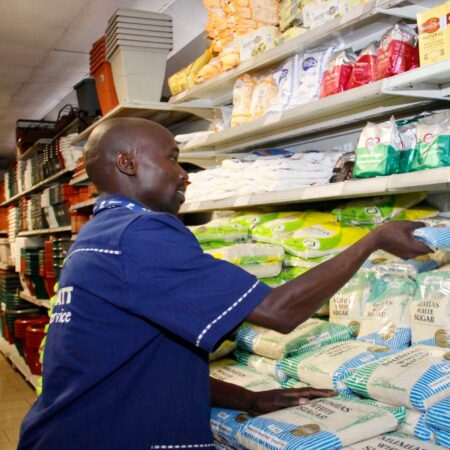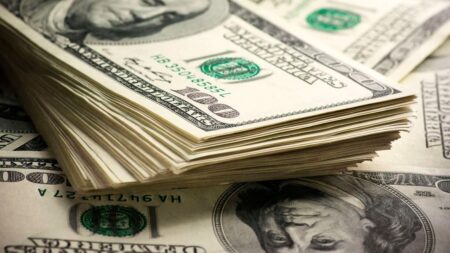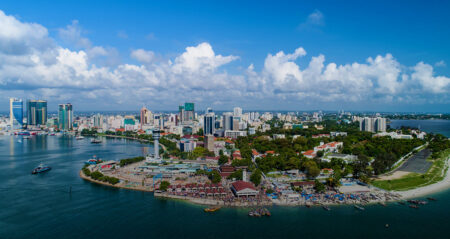- Kenya will progressively allow more imports from the EU into its market.
- An EU official terms the trade agreement with Africa’s seventh largest economy “a partnership of equals”.
- Under the Kenya-EU trade deal, Nairobi’s exports to European bloc will be tariff-free from day one.
A new Kenya-EU trade deal will see Nairobi’s exports to the European bloc enjoy tariff-free status from day one, while tariffs on EU exports will be liberalised over time but not on all products. The Kenya and European Union trade deal will provide new opportunities for Kenyan and European businesses, including the micro-, small- and medium-sized enterprises.
The two parties have concluded negotiations on the much awaited Economic Partnership Agreement. A new era of Kenya-EU trade ties will start in post-Brexit world where Brussels is exerting more influence across Africa.
European Commission Executive Vice-President and EU Trade Commissioner Valdis Dombrovskis and Cabinet Secretary of Kenya’s Ministry of Investments, Trade and Industry, Moses Kuria, signed a deal in Nairobi on Monday, June 19.
The Kenya-EU trade deal marks a major step forward in the trade and investment relations between the two parties. The Kenya-EU trade deal will see Kenya’s exports, including coffee, flowers, and minerals, will all have duty- and quota-free access to the EU market.
Kenya-EU trade deal ‘a partnership of equals’
“It is a partnership of equals,” said an EU official on June 14 about the deal, the first trade accord the EU has entered with an African country since an agreement with Ghana in 2016. “Kenya wants to show . . . [it is] a good place for companies to set up shop. This agreement sends that message very powerfully to European investors.”
Brussels aims to implement the provisions of the Economic Partnership Agreement between the EU and the East African Community (EAC) Partner States, on which negotiations were finalised in 2014.
The deal follows a decision by the East African Community Heads of State Summit on February 27, 2021. The Kenya-EU trade deal will remain open to accession of the EAC Partner States.
It is a key deliverable of the EU-Kenya Strategic Dialogue and will be directly supported by the implementation of the Global Gateway Africa-Europe Investment Package announced at the 6th EU-AU Summit in February 2022.
In response to a demand from the EU that has complicated trade discussions with other middle-income nations such as Brazil and Indonesia, Kenya also committed to legally binding pledges on environmental preservation, climate change, and labor rights. These pledges will further deepen Kenya-EU trade ties, boost sustainable economic growth and create jobs.
Kenya-EU trade deal to deepen relationship
“Kenya is one of our most important partners on the African continent. With this agreement, we are establishing a deepened relationship between us and creating new opportunities for our businesses that will increase trade and investment,” Dombrovskis said.
Read also: Kenya’s renewed trade links with US, EU. Will China blink?
The EU remains one of Kenya’s most important trading Partners, absorbing more than a fifth of its global exports. According to CS Kuria, the EPA underlines the shared ambition of Kenya and the EU to upgrade and strengthen their trade, investment, and economic ties.
“This agreement, which provides duty-free-quota-free market access for exports and certainty in the trading regime, will enable the private sector to trade and invest with confidence and expand employment opportunities for Kenyan youth and support livelihoods,” the CS said.
Although the EU is already Kenya’s largest export destination, accounting for 21.1 per cent of Kenya’s total exports, the deal opens significant opportunities for growth.
President William Ruto, who witnessed the deal signing at State House Nairobi, said the agreement assures a stable market for industrialists, mostly in the European Union.
EU will receive duty reductions
These includes those that deal in machinery and mechanical appliances, and pharmaceutical products. Also set to benefit will be manufacturers of chemicals, electrical machinery, beverages and other processed products.
“And in recognition of our varied stage of progress along the development journey, products from the EU will progressively receive duty reductions over a period of 25 years,” Dr Ruto explained.
The parties will work towards the completion of their respective internal procedures for the entry into force of the EPA as soon as possible, a joint statement affirmed.
The Kenya-EU trade deal will also stimulate investment and manufacturing. “Consequently, Kenya is prepared to strengthen its manufacturing sector in order to enhance our exports to the EU globally,” President Ruto said.
He said the country is ready to take its place as a global player in export-led manufacturing and services. “I encourage European companies that import goods from Kenya, to invest in value addition here and export finished, value added products out of Kenya,” he said.
Hub of European firms entering EAC
The agreement appreciates Kenya as the natural hub for European companies seeking markets in the EAC, COMESA, SADC. By tapping into these regional blocs, EU companies will also harness the African Continental Free Trade Area. Kenya is considered the gateway to East and Central Africa.
Read also: Nigeria fintech startup Grey picks Kenya as its gateway into East Africa
The latest developments come at a time the height of the implementation of the Global Gateway Africa-Europe Investment Package, which was announced at the 6th EU-AU Summit in February 2022.
The initiative is promoting trade and investment, accompanied by trade-related development cooperation. It thereby helps deepen Kenya-EU economic ties while boosting sustainable economic growth and job creation.
The EU–Kenya trade deal also anchors a strategic focus on tackling climate change, the President said.
It further commits the parties to take active measures to promote sustainable trade. “I look forward to deepening the partnership between Kenya and the EU in signaling to the world that trade and investment must not imperil the planet and can, rather, save it,” he said.
Kenya’s transition to green economy
The agreement will facilitate the achievement of Kenya’s ambition to transition to the green economy, he noted. “We will deepen trade and trade-related policy measures that will create a supportive business ecosystem for Kenyan firms to participate in sustainable global value chains,” said Dr Ruto.
In addition, Kenya now has the impetus to tap into sustainable global value chains. What’s more it will invest in competitiveness for the sustainable manufacture of high value products. The Kenya-EU trade deal also presents a chance to accelerate technology acquisition as well as innovation for product development.
It also stands to widen the opportunities available in green finance and investment. Further, it strengthens Kenya’s framework for export trade. This is by among others including recalibrating the foreign trade and commercial service sector to align with emerging export opportunities.
Read also: Africa’s private sector missing in action on climate change financing
Last year, exports to the EU increased by 15 per cent to $950.4 million, Kenya’s Economic Survey 2023 indicates. This was from$826.3 million in 2021. The improvement was largely occasioned by increased re-exports of kerosene type jet fuel to the Netherlands.
Conversely, exports to Eastern Europe declined by nine per cent to $104.2 million. The drop was partly due to decreased domestic exports of cut flowers to Russia.
Imports from Europe
During the year under review, the value of imports from Europe decreased by 8.9 to $2.3 billion. This was 13 per cent of the total import expenditure in 2022. The decline was attributable to decrease in imports from the Netherlands (31.5%), Ukraine (72.4%), Germany (20.1%) and Spain (22.1%).
There were notable declines in imports of wheat and meslin; and semi-finished products of iron and steel from Ukraine. Also registering a drop was motor spirit gasoline premium from the Netherlands imports. Aeroplanes and aircrafts, medicaments, smart cards and road tractors for semi-trailers from Germany also dropped.
There was also a decline on structures of bridges and bridge sections and rail locomotives from Spain. The value of imports from the United Kingdom, however, increased from $239.7 million in 2021 to $247.6 million in 2022.
Read also: Deepening Kenya-US trade ties start paying huge dividends
Kenya’s total trade volumes
During the year, expenditure on merchandise imports rose by 17.5 per cent to $17.8 billion. At the same time, earnings from exports of goods grew by 17.4 per cent to $6.2 billion.
The growth in total exports was, however, not sufficient to offset Kenya’s imports. As a result, Kenya’s balance of trade deficit hit to $11.5 billion. “Increase in import expenditure was largely on account of continued increase in imports of petroleum products,” Kenya National Bureau of Statistics said.
The country spent $4.3 billion on refined petroleum products imports. The huge expenditure accounted for nearly a quarter of the total import bill in 2022.
Tea recorded the highest earnings of $1.2 billion due to improved international tea prices. Green leaf was Kenya’s leading export commodity in 2022. The country recorded increased inflows from exports of goods, services and remittances.
Transport, travel and telecommunications services were among services that recorded increased inflows in 2022.











